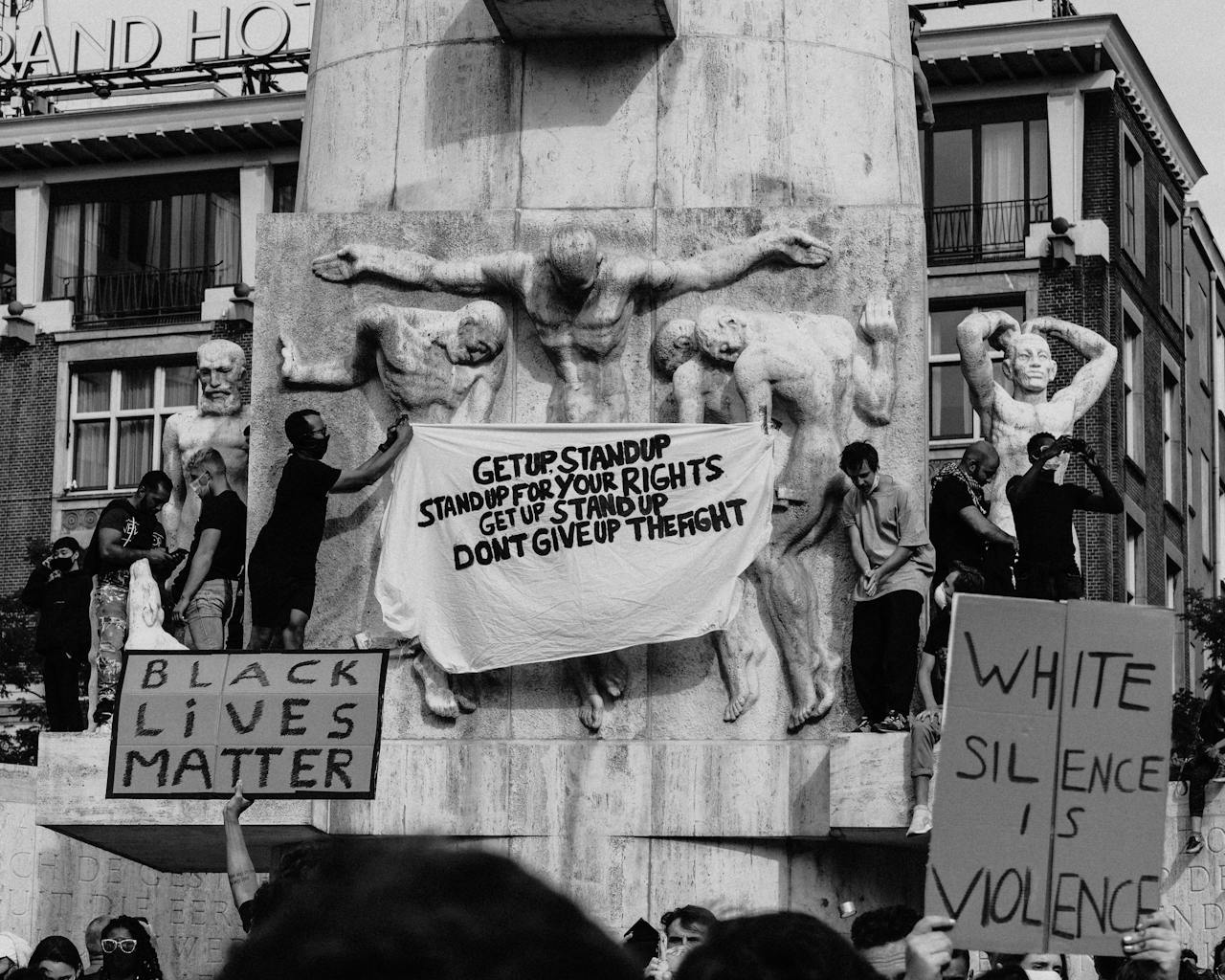Bringing the change: four steps towards racial equality

All that is necessary for racism to continue to flourish is for people like you to do nothing, but what can just one person achieve? From the examples of Black activists, we can see that under the right circumstances and with sufficient ability and will, we can see individuals can achieve quite a lot but that there are limits to what can be achieved by isolated individuals fighting institutionalised oppression.
Step 1 — get to know yourself better
Question your beliefs about people from other ethnic groups to you:
- How far are they based on your direct experience?
- To what extent are they based on ideas you have been given?
- If you were to put different social groups (any social groups) into a hierarchy of lawfulness, usefulness, intelligence, etc., where does the social group you belong to end up? Is there a pattern to how you compare others to yourself and others you feel are most like you?
What did you notice when you tried to answer the above questions? To what extent are your opinions based on objective evidence? Do you have a tendency to favour people who are like you?
Becoming aware of how you think now enables you to think and behave differently. It allows you to change.
The problem is that this bias blinds otherwise good White people and others who are privileged by society to the discrimination experienced by Black people and others. What people witness every day becomes ‘normal’, expected, untroubling. Institutionally racist systems existed long before any of us were born but until each of us begins to challenge the status quo and call out the discrimination and social violence that is endemic in our society, we are tacitly supporting it. Until we act, we are all part of the problem.

Step 2 – widen your circle of friends
Surrounding yourself with a more diverse group of people helps develop empathy, awareness of different life experiences and avoids the insulating echo chamber effect that arises when we naturally attract others who are very similar to ourselves.
Step 3 – seek quick wins
• Amplify minority voices – share concerns on your social media feeds and talk to your friends and family about racism and other forms of discrimination.
• Follow social justice advocates and organisations on social media – sign and share online petitions and email your MP about issues that concern you.
• Use your privilege and power to stand up for the oppressed when you see discrimination taking place.
• You could even involve yourself in politics such as serving on committees or running for office.
Step 4 – recognise intersectionality
Recognize that people are complex and may be discriminated against for many reasons, ethnicity being only one of them. Depending on their identity, Black and Asian people may experience sexism, ageism, homophobia, transphobia or disability discrimination as well as racism.
A journey of a thousand miles starts with a single step
The first step is the hardest, they say. Visibly objecting to inequality and discrimination – being willing to stand and be counted – requires courage. Standing up for what is right requires more effort than enjoying the unearned benefits of being born into the ruling race if you are white. Standing up for your rights while overcoming the systematic disadvantages levelled at you by society is yet another wearisome task unfairly asked of you if you are Black or Asian. Yet it is necessary. Consolidated public pressure is one of the very few things that seems reliably to draw political notice nowadays.
Image credit: Thought Bubble by Liane Kirschner from Noun Project.







Leave a Comment (note: all comments are moderated)